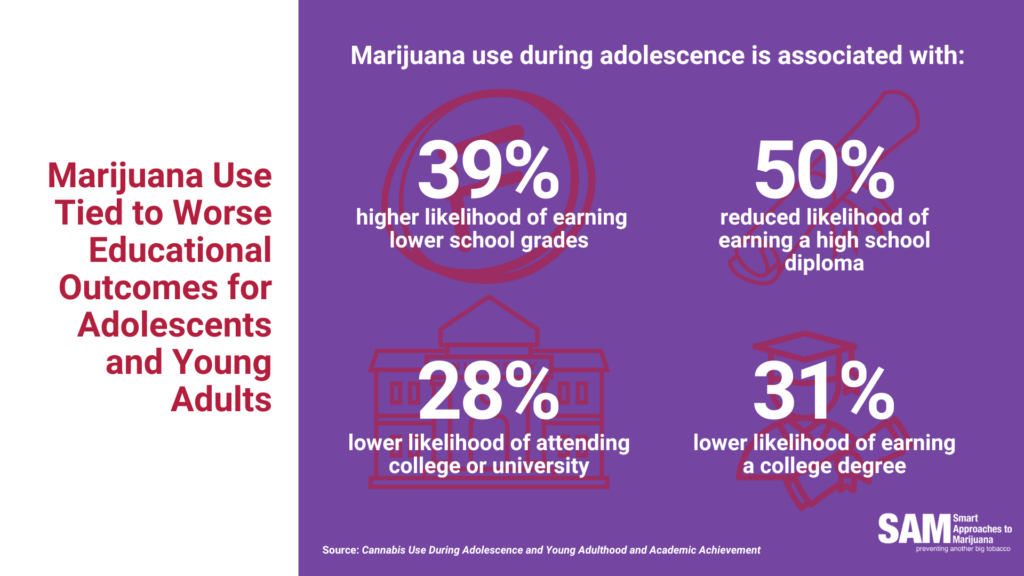
A study published in JAMA Pediatrics on October 7 entitled, “Cannabis Use During Adolescence and Young Adulthood and Academic Achievement,” found that marijuana use is associated with:
- 39% higher likelihood of earning lower school grades
- 50% reduced likelihood of earning a high school diploma
- 28% lower likelihood of attending college or university
- 31% lower likelihood of earning a college degree
- More than twice the likelihood of dropping out of high school
- More than twice the likelihood of school absenteeism
The study was a meta-analysis of 63 studies that included more than 400,000 individuals. It concluded, “moderate-certainty evidence showed cannabis use during adolescence and young adulthood is probably associated with lower school grades; less likelihood of high school completion, university enrollment, and postsecondary degree attainment; and increased school dropout rate and school absenteeism.”
It explained, “with a growing number of countries and most US states legalizing medical and/or recreational cannabis, there is a trend of increased cannabis consumption coincident to decreased risk perceptions of its harms. This raises critical concerns about its potential negative impact, particularly on youths.”
The study also warned that “effective interventions to prevent early cannabis exposure are urgently needed.” However, the legalization and normalization of marijuana threatens to take the nation in the opposite direction. We must protect the well-being of our youth and prevent the long-term consequences of early drug exposure.
This issue is top of mind for our parent advocates at the Parent Action Network (PAN) who have seen the negative impacts of marijuana use firsthand. If you’re a parent or a family member of a loved one who has been impacted by marijuana use and are interested in getting involved with advocacy, please email pan@learnaboutsam.org. PAN not only seeks to educate parents on current issues, but also seeks to train and empower families so they have the confidence and tools to encourage legislators and lawmakers to make informed decisions that protect our youth, public health, and safety.